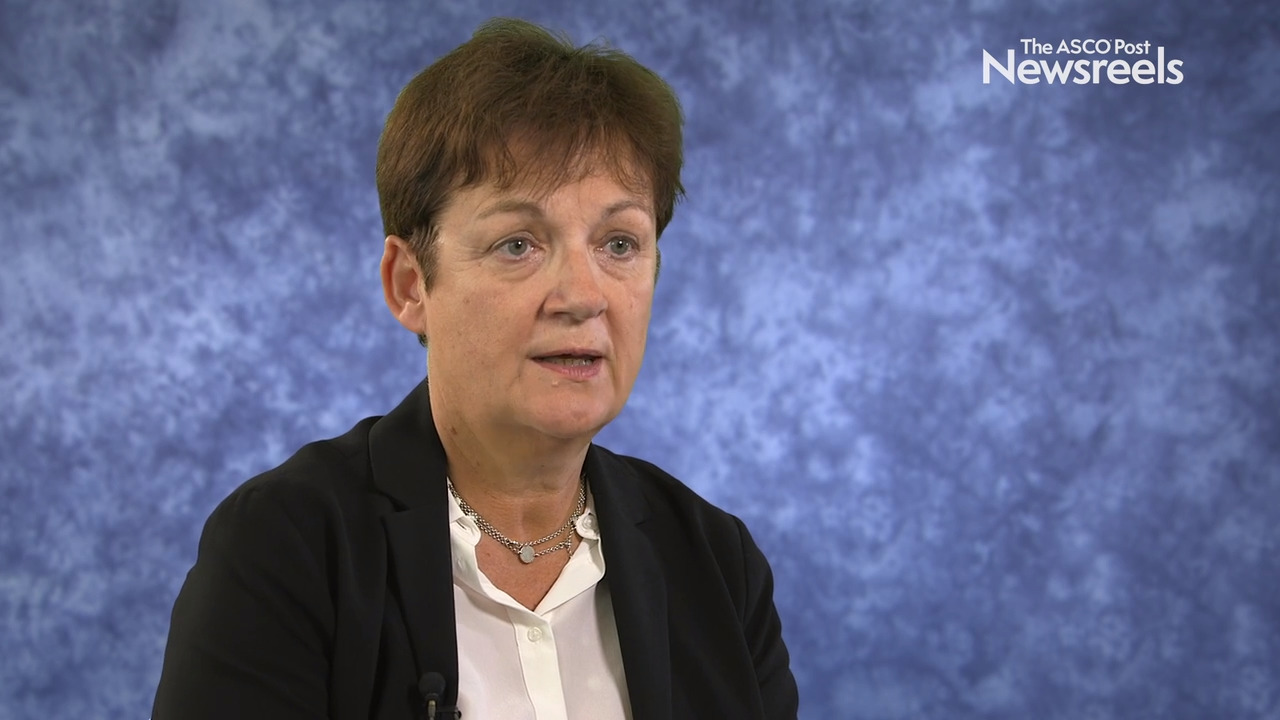Ana Maria Arance Fernandez, MD, PhD, on Advanced Melanoma: Treatment With Cobimetinib/Atezolizumab vs Pembrolizumab
ESMO 2019 Congress
Ana Maria Arance Fernandez, MD, PhD, of the Hospital Clínic de Barcelona, discusses the negative results of the phase III IMspire170 trial, which evaluated cobimetinib/atezolizumab vs pembrolizumab monotherapy in patients with BRAF V600 wild-type melanoma (Abstract LBA69).
The ASCO Post Staff
Nicholas D. James, PhD, MBBS, of University Hospitals Birmingham NHS Trust, discusses the efficacy of prostate radiotherapy plus androgen-deprivation therapy with or without docetaxel in patients with prostate cancer with only lymph node metastases or less than four bone metastases (Abstract 844O).
Véronique Diéras, MD, of Institut Curie Paris & Saint Cloud, discusses results from the phase III BROCADE 3 trial, which investigated the PARP inhibitor veliparib in combination with carboplatin/paclitaxel in patients with advanced HER2-negative, germline BRCA–mutated breast cancer (Abstract LBA9).
Isabelle Ray-Coquard, MD, PhD, on Ovarian Cancer: Olaparib Plus Bevacizumab
Isabelle Laure Ray-Coquard, MD, PhD, of the Centre Leon Bérard, discusses phase III study findings in patients with newly diagnosed, advanced ovarian cancer who received olaparib plus first-line bevacizumab maintenance treatment. Compared with placebo plus bevacizumab, olaparib improved progression-free survival, with the greatest benefit in women with BRCA mutations and positive homologous recombination deficiency status (Abstract LBA2).
Robin L. Jones, MD, MBBS, of The Royal Marsden/Institute of Cancer Research, discusses the first phase III study in angiosarcoma, which showed no difference in outcome between pazopanib vs pazopanib plus the novel monoclonal antibody TRC105 (Abstract 1667O).
Laura Q.M. Chow, MD, of the University of Texas at Austin, Dell Medical School and LIVESTRONG Cancer Institutes, discusses phase II study findings that showed the ALK inhibitor ceritinib achieved durable intracranial response in patients with ALK-positive non–small cell lung cancer that has spread to the brain (Abstract 1478O).





